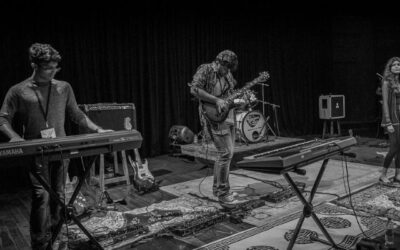Let me start off by admitting a clear bias here- I love music and everything about it. Moreover, I’ve loved learning how to play a musical instrument for several years now. This piece is by no means a neutral analysis of the pros and cons of music education; instead, it’s just a small attempt on my part to win over neutrals and naysayers.
Here’s how I came to be so convinced by the power of a music education. I first started learning how to play the guitar when I was in sixth or seventh grade. What made me start? It was actually pretty simple- I was listening to a lot of Metallica and Led Zeppelin around the time, and I knew I wanted to be able to play those guitar solos myself. So I asked my parents to buy me a cheap acoustic guitar- luckily, they obliged- and started taking lessons from a group of people I’d later come to respect a great deal. Here’s the thing though, I was a pretty miserable kid back then. I wasn’t quite bullied, but I barely had any friends, and I hated every second of school. More importantly, I hated myself. I didn’t quite have anything to pride myself over- my academic record was distinctly mediocre, and I was (and still am) far, far worse when it came to sports. Now, however, I had something I could be good at- something which, if I poured in enough practice, I could be proud of. And that’s what I did- I practiced, endlessly. When I’d had a bad day, it served as a good distraction; when I’d had a better day, it was just fun.
Over time, I got more proficient at playing the guitar. I started playing with other people, I had a couple performances, and I learned how to play that Stairway to Heaven solo. These developments coincided with other changes in my life- I switched schools, for instance- and slowly enough, I just became a happier kid. A lot of it had to do with music. For example, I met many of my new friends in the school’s music room. My academic record also began to improve- and as I’d find out much later, this too was probably connected to my music education.
What many people fail to realize is that the benefits of a music education go far beyond the obvious realm of music and instrument-playing. A wide range of institutions and research bodies have carried out studies on the effects of musical training; almost all suggest the existence of major academic and social benefits from the same. One ten-year study found that in a sample of roughly 25,000 middle and high school students, children in music classes consistently scored higher grades in standardized tests than their non-musical counterparts. Another study by researchers from Durham University found that participating in a music ensemble not only raised students’ self-confidence, but also improved their quality of work in groups. There is indeed a neurological explanation for these effects- playing a musical instrument has been shown to exercise multiple areas of the brain at once, strengthening several brain functions over time- but this explanation isn’t fully conclusive yet.

Gaurav Kamath is an ex-TAAQADEMY student, currently pursuing humanities studies at Ashoka University.
Of course, I didn’t know any of this at the time. The sole reason I believe in the power and relevance of music education is that it triggered a series of positive changes in my life- it opened up a whole new side of me, one far more confident and happy. I’m sure this might not be the case for everyone. That being said, I’ve never met a person who’s picked up an instrument (or honed their vocal skills, for that matter), stuck with it, and ended up regretting it. To be honest, I doubt I ever will.




